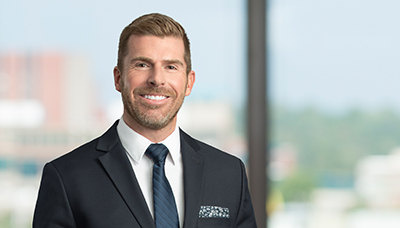Highlights
The HHS-OIG declined to impose administrative sanctions on a physician practice that offers employed physicians bonus compensation tied to the practice’s net profits from facility fees attributable to services provided by the employed physician
The agency broadly interpreted the AKS’ statutory exception and regulatory safe harbor related to employees
The arrangement did not involve designated health services or otherwise implicate the Stark Law, so this opinion should be narrowly interpreted
The Office of Inspector General of the U.S. Department of Health and Human Services (HHS-OIG) issued Advisory Opinion 23-07 on Oct. 7, a favorable decision regarding a proposed arrangement in which a physician practice would implement a bonus compensation structure based on the net profits the practice receives for services provided by its physician employees at its ambulatory surgery centers (ASCs).
The HHS-OIG concluded that the proposed arrangement, based on the specific facts provided, would not constitute illegal remuneration under the federal Anti-Kickback Statute (AKS) or constitute grounds for imposing sanctions under the HHS-OIG’s exclusion authority and the civil monetary penalty provisions of the Social Security Act.
Under the proposed arrangement, a physician practice would offer bonus compensation to physicians employed by the practice (the physician employees) who furnish surgical services at one of two ASCs operated as divisions of the practice. Specifically, physician employees could earn, in addition to an employee’s base employment compensation, a quarterly bonus of 30 percent of the practice’s net profits from the ASC facility fee collections attributable to services provided by the physician employee at one of the two ASCs.
The physician practice certified the following key facts:
- All physician employees would be bona fide employees of the physician practice
- The bonus compensation would constitute an amount paid by an employer to an employee for employment in the furnishing of any item or service for which payment may be made in whole or in part under Medicare, Medicaid, or other federal healthcare programs
- The two ASCs would be divisions of the physician practice, rather than separate legal subsidiaries, and each ASC would be a “distinct entity” that would otherwise comply with the Medicare conditions for coverage and other requirements applicable to ASCs
- The physician practice would not furnish “designated health services” as defined by the physician self-referral law (Stark Law)
- The proposed arrangement would not otherwise implicate the Stark Law in any way
Although bonus compensation arrangements that tie compensation to profits generated from services furnished to patients referred by the compensated party present potential risks of fraud and abuse, the HHS-OIG concluded that 1) the bonus payments would constitute compensation paid only to bona fide employees of the physician practice and 2) the bonus compensation would constitute an amount paid by an employer to an employee for employment in the furnishing of any item or service for which payment may be made in whole or in part under Medicare, Medicaid, or other federal healthcare programs.
Because the arrangement satisfied the statutory exception and regulatory safe harbor for employees, the HHS-OIG concluded that the bonus compensation would not constitute illegal remuneration.
Key Takeaways
The HHS-OIG’s favorable opinion applies a broad interpretation of the AKS employment safe harbor, specifically with respect to the requirement that the employment under the AKS safe harbor involves “furnishing of any items or services for which payment may be made…under Medicare, Medicaid or other Federal health care programs.” The proposed arrangement tied bonus compensation to the facility fee for services the physician provided at certain ASC facilities under the physician practice’s control. Generally, the facility fee compensates the ASC for the space, equipment, and staff required to provide services (which are not directly furnished by the employed physician), whereas the professional fee provides compensation for the professional services performed by the employed physician.
Allowing a physician practice to tie bonus compensation to the facility fee indicates the HHS-OIG’s willingness to broadly interpret the scope of protection under the AKS employment safe harbor.
It is also important to note that, in issuing its opinion, the HHS-OIG relied on and emphasized the physician practice’s certification that the arrangement would not implicate the Stark Law. The Stark Law employment exception is more restrictive and imposes additional constraints on employers compared to the AKS employment safe harbor. Thus, physician practices, especially those owned by hospital systems subject to the Stark Law should exercise caution in attempting to mimic the proposed arrangement, because the opinion is highly fact-specific and unlikely to pass scrutiny under the Stark Law.
For more information, please contact the Barnes & Thornburg attorney with whom you work or Heather Delgado at 312-338-5905 or heather.delgado@btlaw.com, Jason Schultz at 574-237-1210 or jason.schultz@btlaw.com or Jane Sitorius at 312-338-5914 or jane.sitorius@btlaw.com.
© 2023 Barnes & Thornburg LLP. All Rights Reserved. This page, and all information on it, is proprietary and the property of Barnes & Thornburg LLP. It may not be reproduced, in any form, without the express written consent of Barnes & Thornburg LLP.
This Barnes & Thornburg LLP publication should not be construed as legal advice or legal opinion on any specific facts or circumstances. The contents are intended for general informational purposes only, and you are urged to consult your own lawyer on any specific legal questions you may have concerning your situation.















